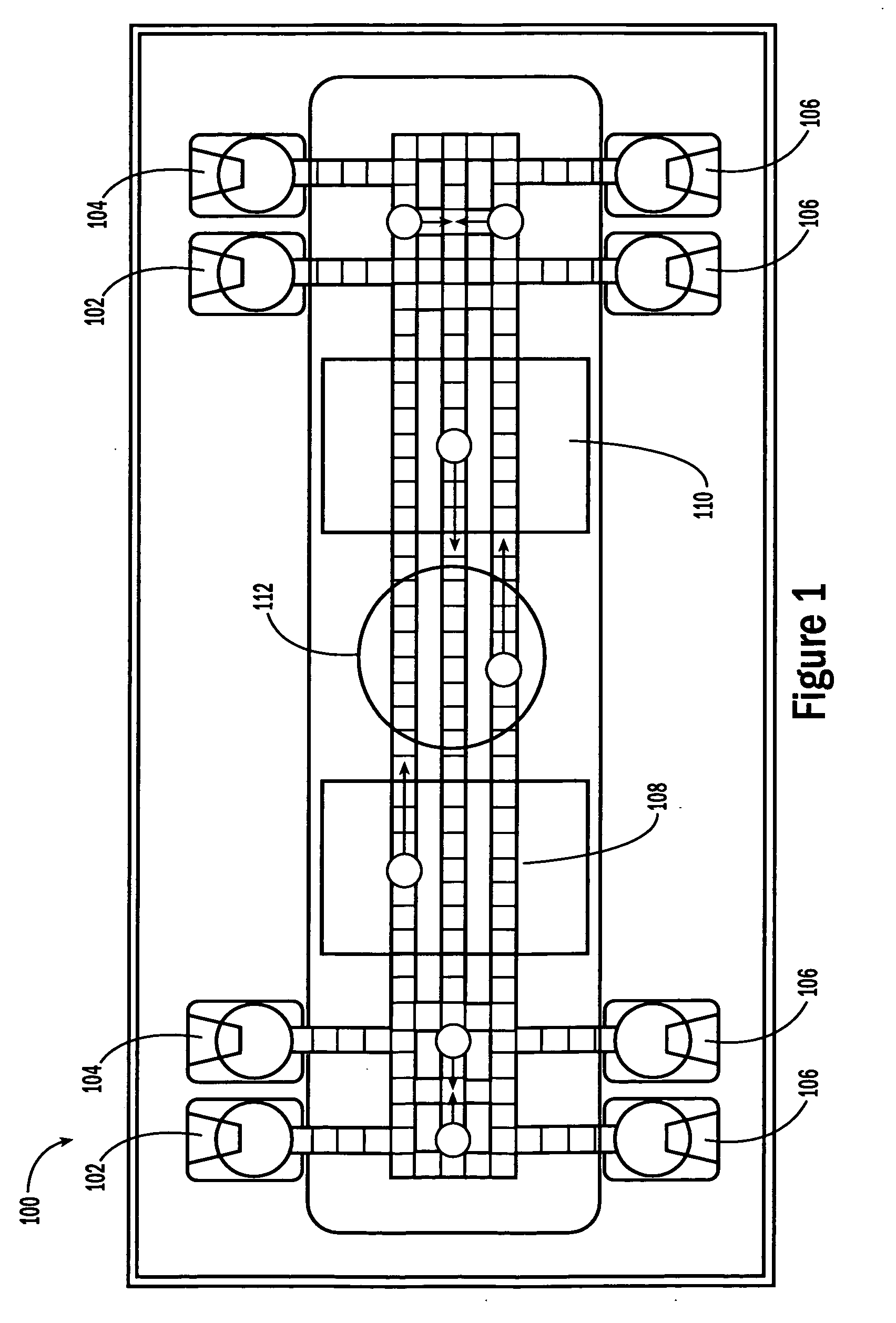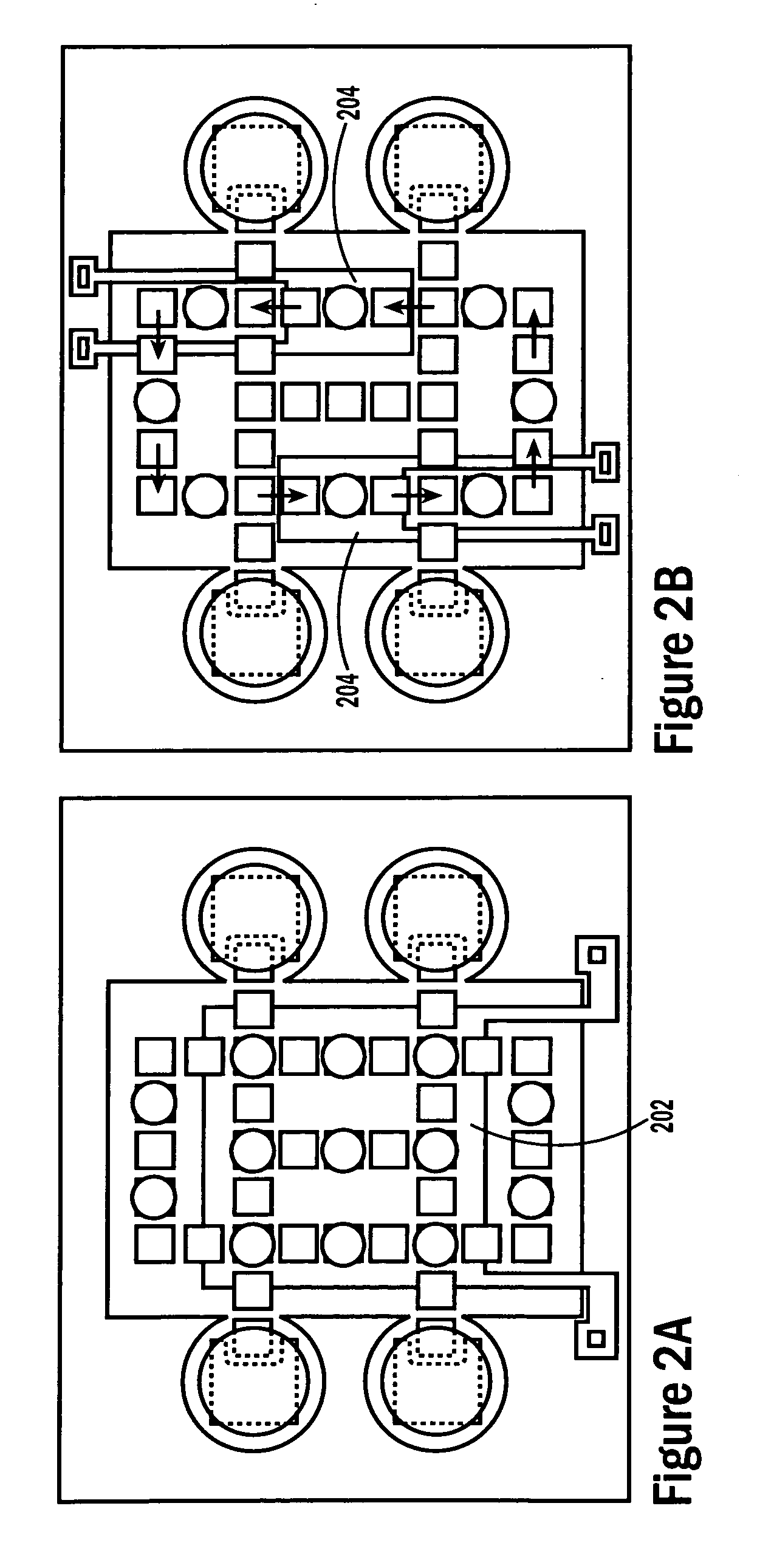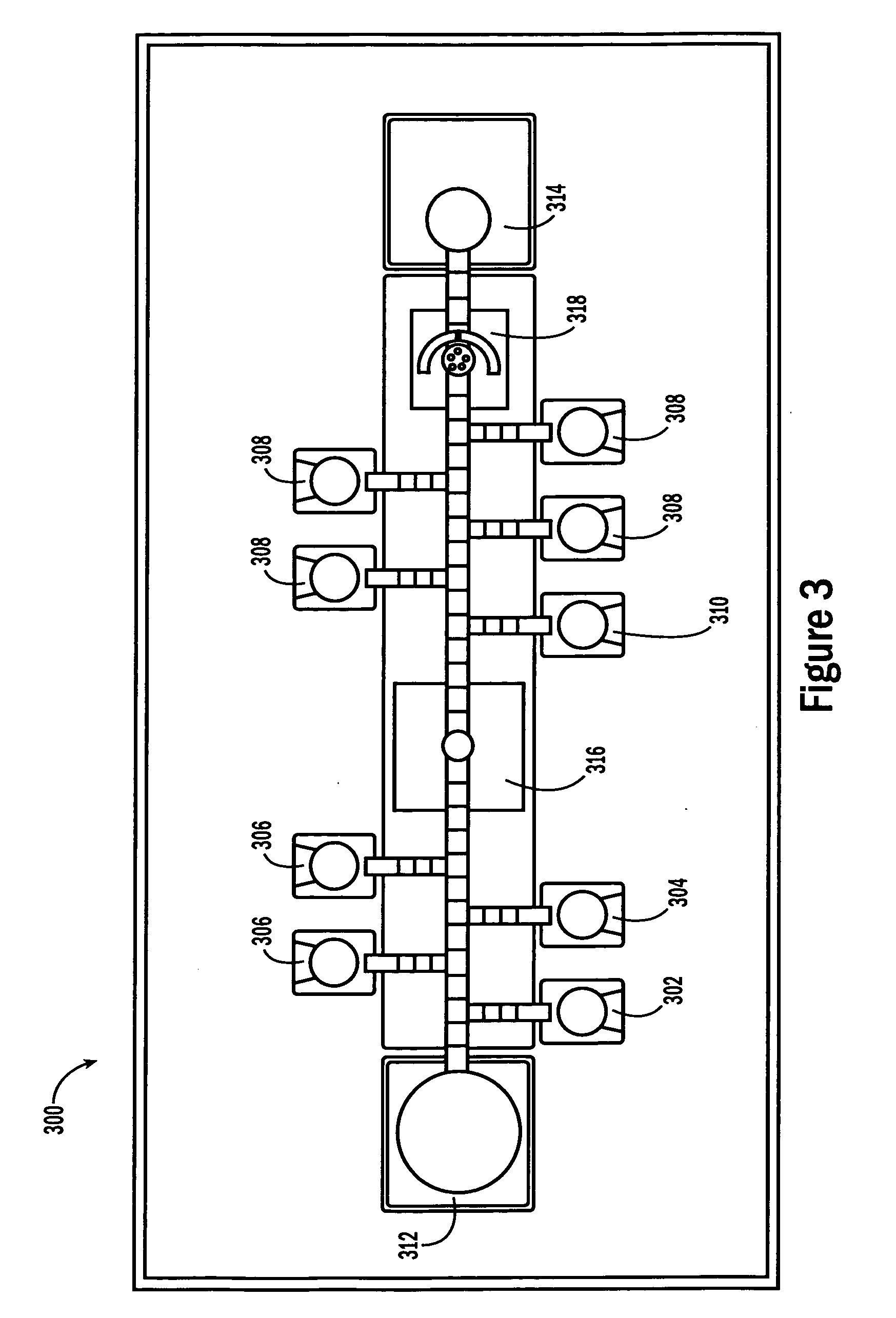Droplet-based affinity assay device and system
a technology of affinity assay and droplet, which is applied in the field of droplet-based affinity assay device and system, can solve the problems of drug resistance markers, high labor intensity and susceptibility to cross-contamination, and the current pcr-based dna amplification method suffers from a number of drawbacks, and achieves the effect of large laboratory facilities, point-of-sample collection (poc) testing for bedside blood analysis
- Summary
- Abstract
- Description
- Claims
- Application Information
AI Technical Summary
Benefits of technology
Problems solved by technology
Method used
Image
Examples
Embodiment Construction
[0053]The invention provides methods, devices and systems for executing one or more droplet-based biochemical assays. For example, the invention provides methods, devices and systems for amplifying nucleic acids, analyzing the sequences of nucleic acids, conducting affinity-based assays, and / or analyzing components of bodily fluids.
[0054]In certain embodiments, a protocol of the system may involve one or more of the following steps in any order which achieves the detection end of the invention: extracting sample from a subject; processing the sample for loading onto a droplet microactuator; loading the sample onto the droplet microactuator; dispensing one or more sample droplets of the sample for transport on the droplet microactuator; loading one or more reagents onto the droplet microactuator; dispensing one or more reagent droplets for transport on the droplet microactuator; transporting one or more reagent droplets and / or one or more sample droplets so as to bring the one or mor...
PUM
| Property | Measurement | Unit |
|---|---|---|
| volume | aaaaa | aaaaa |
| volume | aaaaa | aaaaa |
| volume | aaaaa | aaaaa |
Abstract
Description
Claims
Application Information
 Login to View More
Login to View More - R&D
- Intellectual Property
- Life Sciences
- Materials
- Tech Scout
- Unparalleled Data Quality
- Higher Quality Content
- 60% Fewer Hallucinations
Browse by: Latest US Patents, China's latest patents, Technical Efficacy Thesaurus, Application Domain, Technology Topic, Popular Technical Reports.
© 2025 PatSnap. All rights reserved.Legal|Privacy policy|Modern Slavery Act Transparency Statement|Sitemap|About US| Contact US: help@patsnap.com



